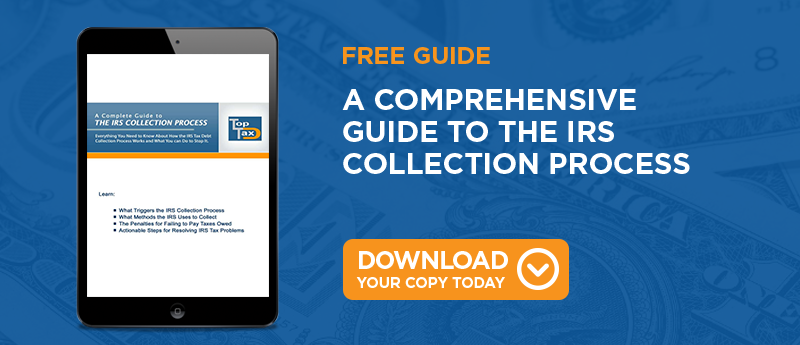
The IRS helps numerous taxpayers each year meet their defaulted tax obligations by setting them up on installment plans. These plans let people pay reasonable amounts toward their debt each month. Just as they would with a car loan or credit card, debtors can pay regularly on their obligation until the amount is satisfied in entirety.
However, having another payment to make on top of their other monthly expenses can be a burden that some people find difficult to carry. Many taxpayers default on their tax agreements and face legal ramifications that prove to be devastating to their finances. Rather than allowing their assets to be seized or their wages to be garnished, people who have defaulted on their IRS installment plans should take these important steps to work with the IRS and resolve their tax debts.
Wait for a Notice of Default and Intent to Levy
By law, the IRS must notify people that they have defaulted on their plans and now face other actions to collect the tax debt. It is important that people wait to receive this formal notification in the mail before they take any other steps to remedy their obligation to the government. In fact, this letter guarantees that they have certain rights that must be upheld before the IRS can take any legal recourse like garnishing their wages or seizing their bank accounts.
Act Quickly to Renegotiate the Plan
In fact, one of the rights guaranteed by law when people receive their notification of their default involves appealing and renegotiating their installment plan. Typically they will have 30 days after they receive the letter to contact the IRS and appeal to set up a new payment plan.
When people act promptly to file an appeal and ask for a new payment plan, the IRS legally cannot move to garnish their wages, take over their bank accounts, or claim any other kind of asset. This quick action can be vital for individuals who have modest incomes and need money to support their families and meet other important financial obligations.
Attend the Appeal Hearing
Once they file their request to appeal and renegotiate their installment plan, taxpayers should then make every attempt to attend the scheduled appeals hearing. Failing to show up to the hearing or dismissing the decision altogether will provide the IRS with the opportunity to take other actions against them.
When they attend the hearing, however, people are given the opportunity to disclose new information that perhaps was not pertinent at the time the original agreement was created. In fact, these new circumstances should be reported if taxpayers:
- Had a new baby or adopted a child
- Make less money than they did at the time of the original agreement
- Have more work-related expenses
- Experience other financial hardships that make the payment agreement unsustainable
People should tell the appeals officer about these newest details and request that their agreement be revised.
Moreover, when they attend the hearing, people actually gain an ally of sorts to their side of the case. They will be assigned an appeals officer to oversee their case, giving them an actual person to communicate with rather than a random automated service that handles the IRS' customer service calls.
Retain a Tax Attorney or Tax Law Firm
Just as they normally would not go to court without legal representation, people likewise should avoid negotiating with the IRS throughout the appeals process without qualified tax counsel by their side. A tax attorney or tax service that specializes in this area of law can make sure that people agree on a new plan that can work for them and their current financial situation.
For example, it can be difficult for people to express their financial situation adequately and in a manner that will work to their benefit. They may be met with doubt or without the understanding they need to make the new plan suitable to their lives.
A tax firm, however, can provide proof of a person's financial hardships and get the payment amount each month lowered to a more realistic amount. It can also persuade the IRS to accept expenses like travel costs that play a direct role in a person's inability to pay the initial installment amount.
Likewise, a tax attorney could also make an offer to compromise and have the client settle the debt for a lower amount. If an offer to compromise is made, however, it is vital that the attorney and the client get that new agreement in writing to prevent future attempts to collect after the debt is paid in full.
Being indebted to the IRS can be a nerve wracking experience that many people try to resolve with installment plans. These plans give them the chance to pay off their debt with monthly payments. When they default on this plan, however, people may fear that their assets will be seized and their wages garnished. They can prevent these actions and other collection attempts by taking these vital steps to protect their finances and resolve their IRS debt successfully.




